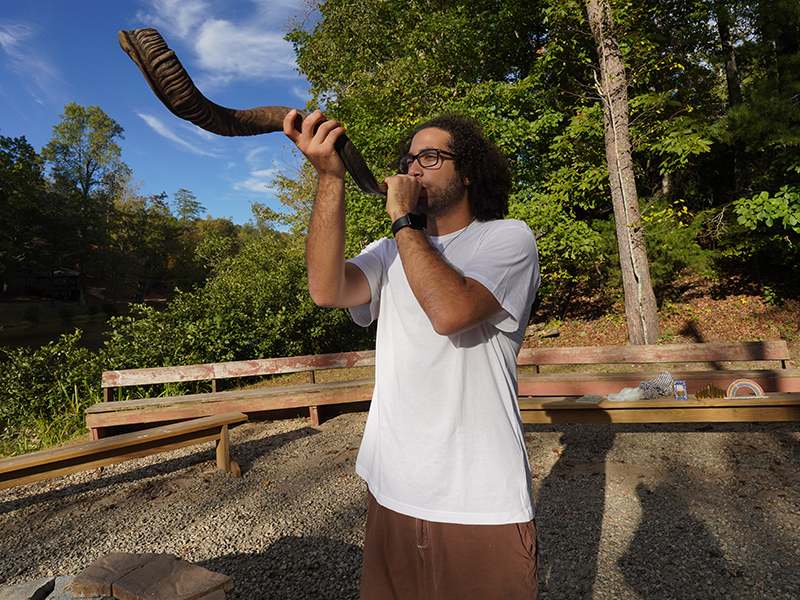Make a Special High Holiday Gift
Your generosity fuels Jewish life, sustains 850+ communities and congregations, and drives the Reform Movement forward in the pursuit of justice.

Listen to Rabbi Rick Jacobs discuss Parashat Nitzavim/Vayeilech in these episodes of his podcast, On the Other Hand: Ten Minutes of Torah.

Ten Minutes of Torah: Nitzavim - Vayeilech Commentary
How to Stand Proudly, Not Perfectly
Four times in this week's parashah, we read Moses' command to Joshua as he transfers power: "hazak v'amatz," be strong and courageous. Strength and courage are not arrogance or stubbornness - strength and courage are found in the stumbling and straying. Nitzavim/Vayeilech means we stand and go; the directive is not physical but metaphorical and internal.
Continue Reading